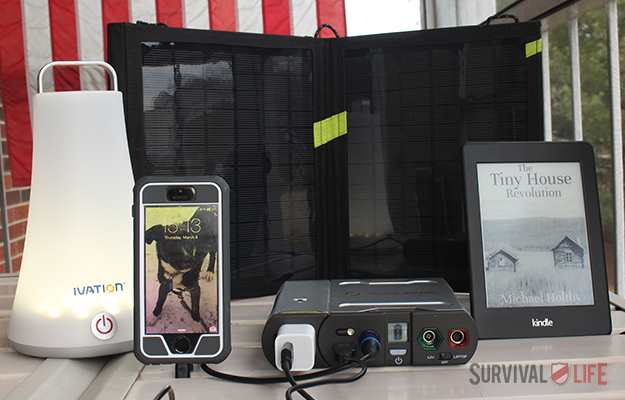There’s a ton of survival tips and tricks out there that focus on lists of junk you don’t need and forget about the small things.
Sure, there are lots of items that would be great to have around in a post event environment.
Does this mean you should be focussing on these lists of gear and other items as a means of preparation?
My answer to this question will always be, “no.”
To really stay prepared, try to integrate these habits into your life to improve your chance of survival when the SHTF.
1. You’re not incorporating solar electricity in your daily life.
Incorporating solar into your daily life is easy, relatively cheap, and important to do. It’s going to get you into the habit of being battery-conscious and sun-conscious. You need sun for electricity so you’ll begin to look out for it and learn what works for your solar kit and what doesn’t. Also, you’ll begin to be conscious of how much battery power you’re wasting because you’ll need it to last longer when the SHTF. You’ll save a little on electricity charging things with solar every night. Yes, this is going to be a negligible savings, but its a savings nonetheless. What do I need to do?
Buy a small, relatively inexpensive, and versatile solar kit and use it to power your small electronics. I power my kindle, iPad, and iPhone exclusively with solar. Why will this bite me in the ass? If you don’t incorporate this into your daily life, then when the SHTF, you’ll have no idea if your solar kit works, what the best practices are for your particular kit, and not pay as close attention to how much battery power you’re wasting.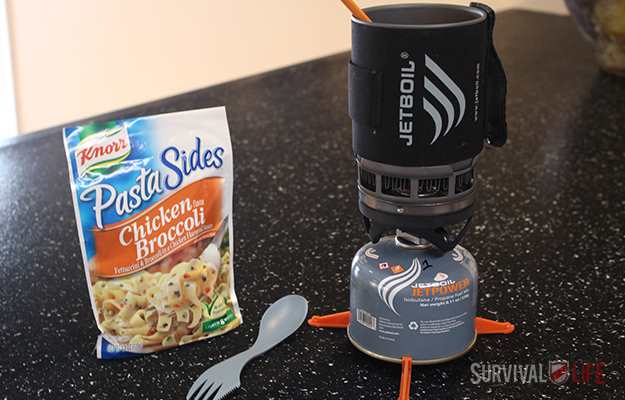
2. You’re not cooking one meal a week with your bug out kit.
Cooking just one meal a week using your bug out cooking gear can make a drastic difference in the comfort level and safety of your bug out group. You need to be an expert at cooking using the things you’ll be stuck with if the SHTF. You also need to know if that gear is crap and needs to be replaced, upgraded or downgraded. Finally, it’s going to take a ton of stress off of you during an already stressful time. When your whole world changes in a matter of (weeks, days, hours), you’re going to be one cranky jerk. Dinner time needs to be as peaceful and stress-free as you can make it.
If you kick off dinner by cursing at your stove and throwing utensils and end up eating a burnt meal, you’re unnecessarily adding to your stress. Remember, morale is important for yourself and your group. If you’re not the warm and fuzzy kind, just remember that stress can drastically impact your health – especially your immune function and risk of heart attack or stroke. That’s important if you’re the leader of your bug out group (family) and there aren’t any hospitals.
What do I need to do? Cook just one meal a week (preferably a dinner meal, as they tend to be larger and more complex) using the cooking items in your bug out kit. Notice I said cooking items and not food items. Your stove, cookware, utensils, etc are cooking items. The point here is to be proficient with your tools. Why will this bite me in the ass? If you don’t, then when the SHTF you’re going to have no idea how to use your gear (assuming it works), you’re going to jack up your already limited food supply, and you’re going to add to your stress and that of the group.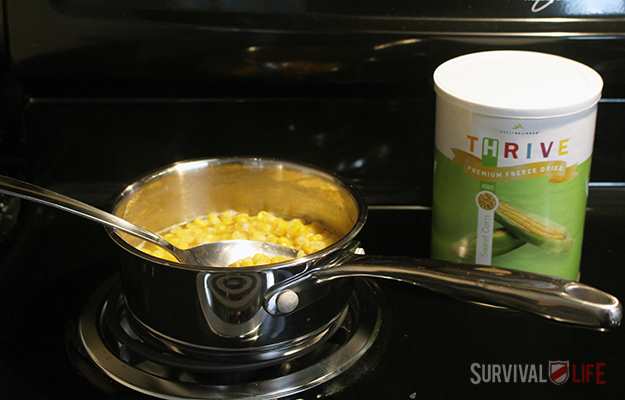
3. You’re not incorporating your prepping food into your routine meals Incorporating your prepping food stores into your regular meal plan will reap large benefits post- SHTF.
You need to know what’s in your food stores and what is not. You also need to learn to cook with that type of food (be it dehydrated, freeze-dried, etc). Water-absent foods like those we popularly use for food storage require extra steps in the meal-prep phase. You need to know how to get the best results from your food before the SHTF. This is going to keep you from ending up with water-flavored strawberries – and anyone who has reconstituted freeze- dried fruit knows exactly what I’m talking about. It is also important to rotate your food stores. Believe it or not, that shit goes bad eventually.
 Don’t assume everything in your storage has the same expiration date. Check, label, know. Finally, you need to know what is working in your food store and what is not. You also need to know what you need more or less of. Some families (like mine) like waffles for breakfast. So I’m going to have more Bisquick-like stuff in my storage than someone who hates waffles. This is going to make your life easier when the SHTF and suddenly omelets come from a powder, blueberries need reconstituting, and your chicken parmesan is made with diced chicken. Appetizing meals post SHTF will help raise morale, keep your group healthy, and decrease stress. What do I need to do? Incorporate your prepping food into your regular meals.
Don’t assume everything in your storage has the same expiration date. Check, label, know. Finally, you need to know what is working in your food store and what is not. You also need to know what you need more or less of. Some families (like mine) like waffles for breakfast. So I’m going to have more Bisquick-like stuff in my storage than someone who hates waffles. This is going to make your life easier when the SHTF and suddenly omelets come from a powder, blueberries need reconstituting, and your chicken parmesan is made with diced chicken. Appetizing meals post SHTF will help raise morale, keep your group healthy, and decrease stress. What do I need to do? Incorporate your prepping food into your regular meals.
This could be once a week or once a month, but you need to occasionally cook one entire meal completely from your food store. By “completely,” I mean that you can use no ingredients that don’t come from your food store. It’s a good idea to rotate the meal, as well. Cook dinner this time, breakfast next. Why will this bite me in the ass? If you don’t use your food stores routinely, you’re not going to know what’s in there, and not going to know how to use it. This is going to frustrate you in the post SHTF environment when you’re messing with a whole new culinary realm. What’s worse, it’s going to make for some crappy meals for your group – and that’s not going to help morale. Keep morale in mind because humans can do anything with hope and a positive attitude, and can do jack without them.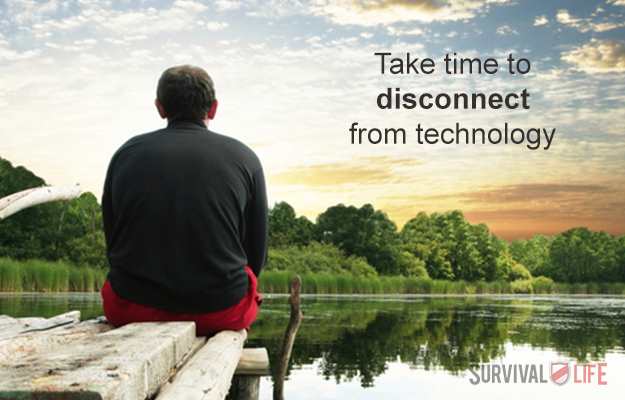
4. You’re not taking one day a week to be free from all electronics
Disconnecting from the electronic world for a day can help you in the post SHTF world. I could tell you about the scientific research showing how occasionally “disconnecting” is having a profoundly positive impact on people, but I’d rather state the obvious. Going from a world where technology permeates every part of your life to one where technology is almost entirely absent will be a massive culture shock – and one that can be avoided by learning to live without the tech. This is going to make your life much easier when you don’t have a phone to quickly call someone, quickly google that question or hop on youtube for a ‘how-to.’
You need to learn to replace those things and you’ll never learn what needs replacing until you ditch the tech. What do I need to do? One day a week, turn off your phone, leave the computer alone, keep the TV off, and get out of your house. Go to the park, go canoeing, anything but interact with technology for 24 hours. Basically, be Amish for one day each week. Why will this bite me in the ass? If you let technology permeate your life until the very last day, you’re going to have a hell of a hard road to go post SHTF when you can’t entertain yourself to keep you morale up, you feel utterly lonely without social media, and you have lost all of your survival knowledge with that dead battery or lost internet.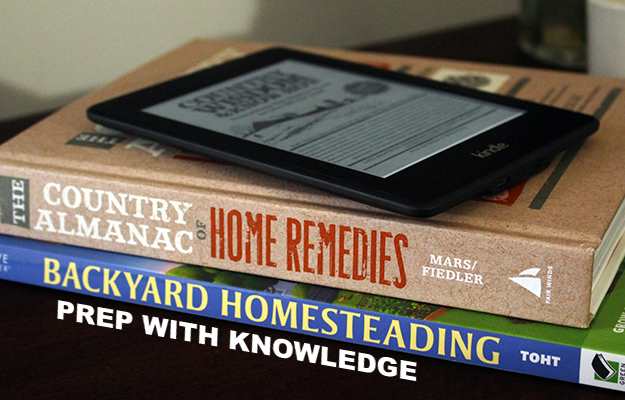
5. You’re not buying knowledge preps, you’re buying gear preps
The internet will be no more post SHTF, so all the things you use the internet to learn are going to be replaced by books, which will become your new lifeline. Stock up on books that cover any major survival factor you’re not a total expert on. Succeeding in adverse environments (ie a post SHTF environment) depends very largely on two things: one’s knowledge and one’s motivation. If someone is a survival genius but is depressed and believes it’s all for naught, they will sit down and die.
If someone is highly motivated but has no survival knowledge, they will waste away all their energy and die trying, having accomplished nothing. You’re obviously motivated or you wouldn’t be on SurvivalLife, but I’m guessing you don’t know everything. Building up a library to replace Google in the post SHTF world. What do I need to do? If you find a piece of knowledge online. print that shit. I say “paper saves” and offer my articles as clean PDFs to help you out.
Buy books in areas that you lack knowledge. If you can’t tear apart your car’s engine, go get the book from Autozone. If you’re not a master gardener, go get an organic gardening book. If you know nothing about electricity, canning, or medicine, buy books. You don’t have to read them immediately (although it would help you later) but you do need to have them. The best thing is to write down all the topics you read articles about online and get books to cover them. Post SHTF you’re going to need this library to replace Google.
**Bonus tip: throw in a few fiction books from authors you like but don’t read them. This will help you ease your mind later when you truly need a mental escape.**
Why will this bite me in the ass? If your primary source of survival information is the internet or the only survival book you have is the SAS Survival Handbook, you’re going to be royally screwed post SHTF. You aren’t going to know any remedies for headaches, ways to repair things, gardening tips or any number of other things you’re not an expert at.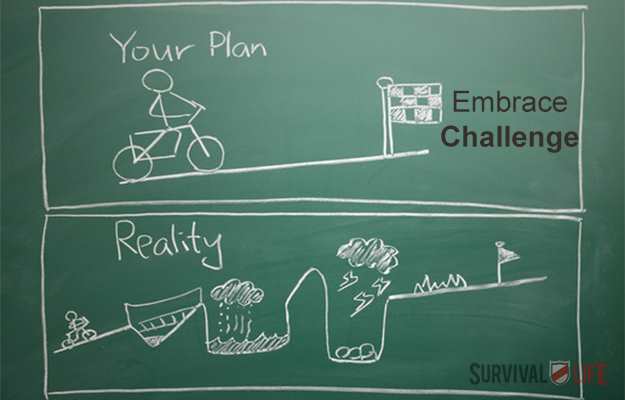
6. You’re not embracing the suck
Do things the hard way, the more productive way, the way that instills discipline and character in yourself. This will help you adapt to rapidly changing, often uncomfortable environments post SHTF. I love a hot, hot shower. Conversely, I hate cold showers. It isn’t just uncomfortable, it puts me in a bad mood. However, I know that post SHTF, my beloved hot showers will be a faint memory. So I make it a point to take cooler (even borderline cold) showers occasionally. Another thing I loathe are wet clothes – shirts, underwear, socks, anything.
I hate it when my clothes stick to me and I have to peel them off. My goal is to make myself endure uncomfortable things and find some sort of aspect to them that ‘isn’t so bad’ – some sort of mental solace. This way, when cold showers are the standard, I don’t dread them and then act like a jerk to my bug out group afterward. Morale is a crucial element to survival and learning to find the positive in the things you dislike will be easier to do pre SHTF than it will be post SHTF.
What do I need to do? Deliberately put yourself in situations and environments that force you to overcome your discomfort and find ways to mentally cope. This could mean taking cooler showers, eating food room-temp or cold, or walking to the store instead of driving. You could also eat foods you dislike, sleep with lights or noise, or choose the longest line at WalMart to learn patience.
Why will this bite me in the ass? If you run up to the day that the SHTF enjoying all your modern comforts, then it’s going to be culture shock when they disappear and you’re going to hate every aspect of your new, crappy environment. You’re going to be negative, cranky, and depressed – none of which are going to help you, or your group, survive.
By Dylan Robinson
Source: survivallife.com

